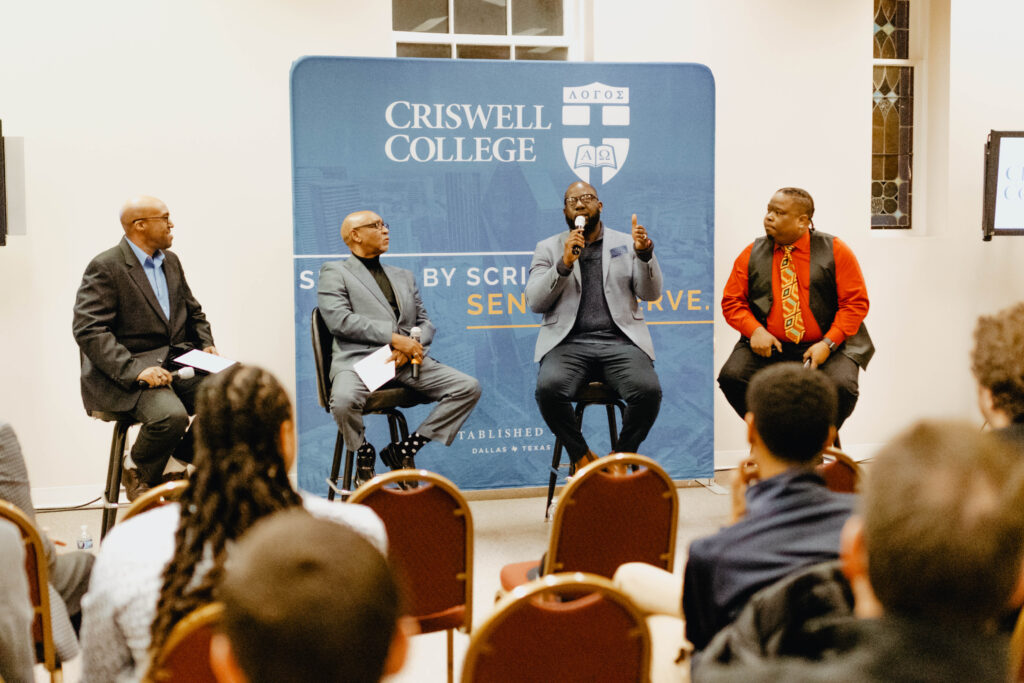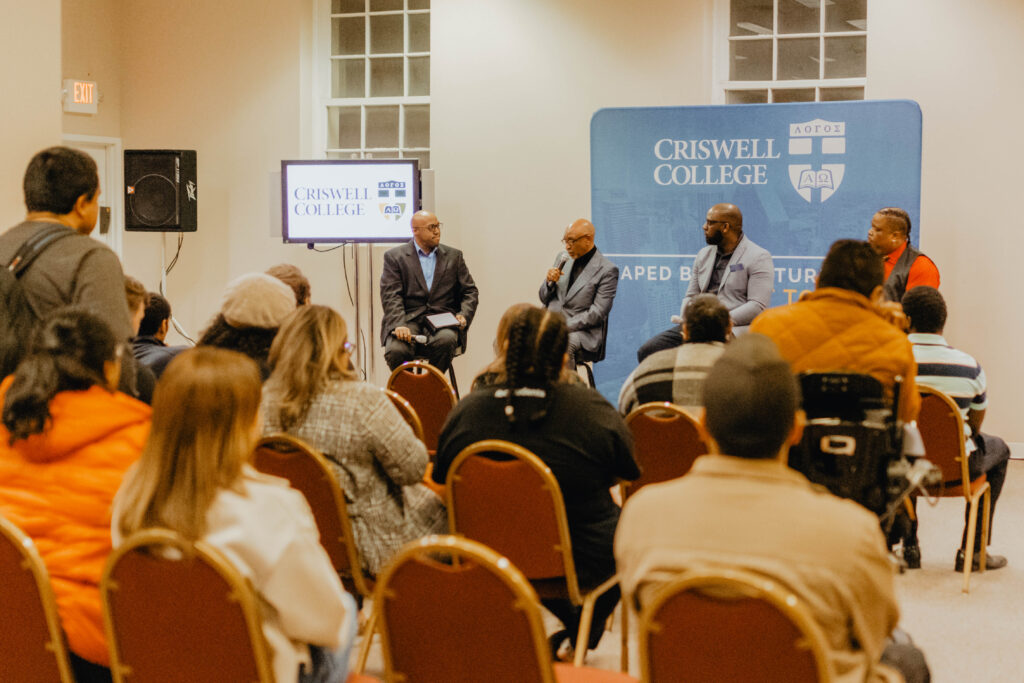
Recently Criswell College students, faculty, and staff gathered on the 3rd floor of the library to hear local Black pastors from the Dallas area share their experiences in engaging culture and serving in ministry.
Divine Inspiration Baptist Church Pastor Wade Simmons, Texas Baptists’ Director of African-American Ministries Oza Jones, and Cornerstone Baptist Church of Arlington Children’s Minister Lynn Harper shared practical and biblically principled thoughts on the Black church and socio-economic challenges.
“It is a loving relationship. It is a relationship intended to meet the needs of the congregation, to reach out to the people in the community,” Pastor Simmons said, describing the church’s place in black communities.
“Some of the challenges in the Black church would be the Black church has been where we had to wear different hats,” Minister Jones said. “So, when you look through history, the Black church was the place where you hold community meetings and worship services because that was the only place we could come together and talk. I think some of those challenges in the Black church have been wearing those different hats, especially as a pastor and minister … being able to address every issue, whether it was a political issue, the school system, whatever issues, that was the place, the townhall place to pray about what our next steps would be.”
Lynn Harper, whose experience includes working with those in the inner city, also added that some Black churches are taking on the role of serving those who are underserved in communities that have been forgotten for many years.
“When you’re living in an inner-city area, you find out some of these areas are generationally deprived,” Minister Lynn Harper said. “So, you are dealing with educational inequities, you’re dealing with housing inequities, you’re dealing with employment and other issues that show up at the church. And with the church being a place where we preach the Gospel that heals, then we have to also have a Gospel that deals with the very real wounds that those people have that need healing. That causes us to put on other roles, from mentors to tutors, to helping individuals with counseling and marital issues and relationship building.”
 The panel added that the Black church plays a vital role in the culture, the local church facing cultural issues by sharing, listening, and learning.
The panel added that the Black church plays a vital role in the culture, the local church facing cultural issues by sharing, listening, and learning.
“I believe the local church is still the hope of the world. If we can do a few things, if we can lament together universally as a church,” Minister Jones said. “If we can cry together and really understand that we have major issues whether it’s the racial climate or political issues; if we can lament together that would be great. And if we could listen together. We need to sit at tables and listen to each other. Not only listen to each other but learn from each other. Actually, learning from each other. And we have to leverage our areas and our platforms.”
The panel encouraged listeners to continue to have grace-filled conversations about the issues in the culture and to be honest about the history of the past while focusing on solutions in the present and future.
To view the panel discussion in its entirety, visit the YouTube link that was provided for the livestream.

